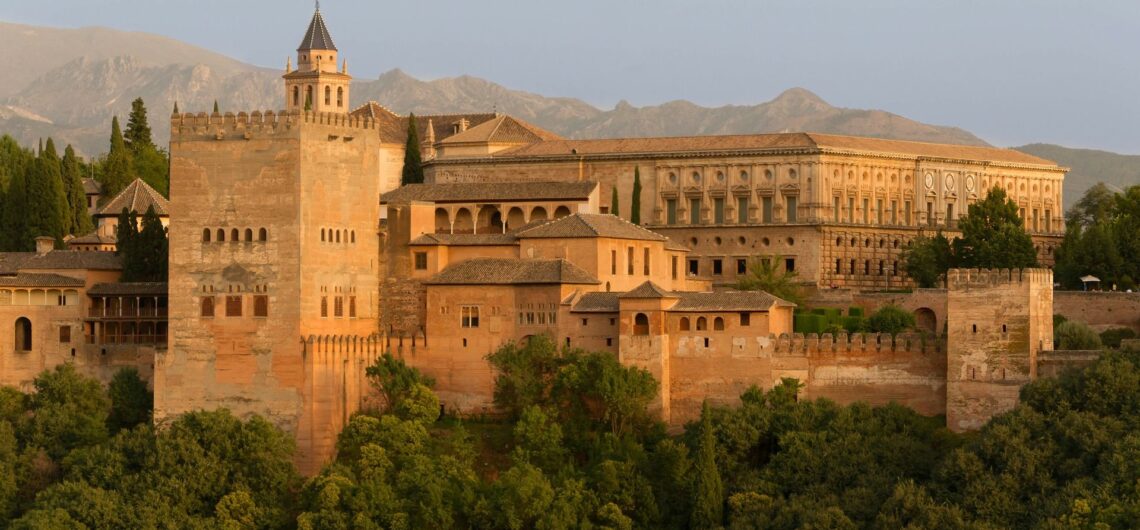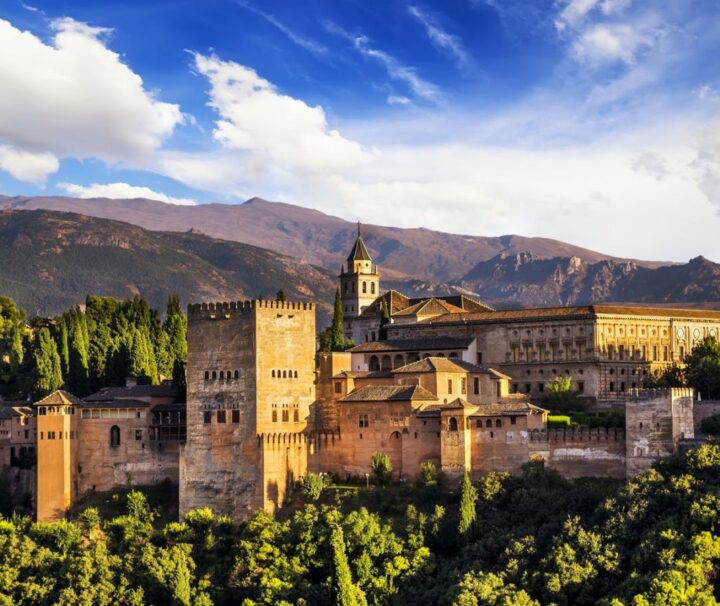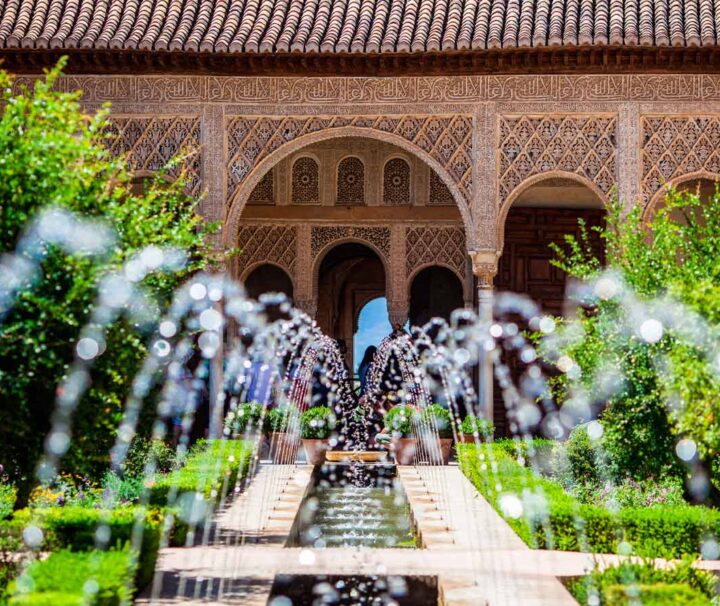Reading the Alhambra
Chapter 3
Based on a transcript from the documentary: Reading the Alhambra. In the posting, we witness the importance of poetry and how it forms the core to this architectural structure.

“From me, both by day and night, mouths salutes you
with wishes of good fortune, happiness and friendship.
She is the Highest Cupola and we are her daughters,
though my favour and glory make me stand out.
My Lord Yusuf, sustained by God, clothed me
in dignity with robes of undeniable distinction,
making me the throne of the kingdom,
the grandeur of which is borned up
thanks to the Light, the Seat and the Throne.”
This poem in the Hall of Comares forms the hub of the poetic access of the Royal Palace of Comares. The building of which was completed by Mohammad V when he added the Hall of the Boat and the Courtyard of the Myrtles, a somatic axis composed of eleven courtly poems, eight of which still remain just as they were orginally inscribed.

Mohammad´s court poet Ibn Zamrak composed the 9 mural qasidas which together with their courtly paradisiacal references turned out particularly for their nuptial metaphors such as those in the niches in the doorway between the Hall of the Boat and the Courtyard of the Myrtles.

“I, beautiful and perfect, am the chair in which the bride is presented.
Look at the vase and you will know how true my words are.”
And once again, in following arch, forming the entrance to the Hall of Comares.

“The fingers of my maker wove my fabric,
after setting the jewels in my crown.
I resemble a nuptial throne, or even excel it,
and I assure happiness to the bride and groom.”
The adjoining Palace of the Lions also built by Mohammad V is arranged around another north-south poetic axis which from the Mirador of Lindaraja passes through the Fountain of the Lions and joins the Hall of the Two Sisters and the Abencerrajes, which orginally comprised ten poems, five of which have since disappeared.

Most of them speak to the palace itself as the garden, the ideal architectural concept as in this poem by Ibn Zamrak. Inscribed in the great cupola of the garden of happiness, the Hall of the Two Sisters which begins in this way.

“I am the garden that with beauty has been adorned.
Behold my loveliness and my high standing will become clear to you.”
The poem also relies on a profusion of astral metaphors.
“In the cupola such splendid as the chamber require that the palace competes with the very firmament, they seem to be arches of turning celetrial spheres that even cast a shadow upon the pillar of the dawn when it breaks.”
It is all inscribed in the most beautiful nazareth cursive lettering, especially within the rectangular curtouches.

“There, the gleaming, polished marble lights up the darkness of the shadows”
And in the neighbouring Mirador of Lindaraja, Muhammad V´s throne room and viewpoint from which he could watch over the city, you can read…

“In heavens of the kingdom, he appears like a full moon of religion,
his works go on, his light glows, he is no other than the Sun of a mansion
in which he- all good gives shade, the crystal heaven reveals marvels
there which are written down on the page of beauty.
One is the light many the colours opposed or the same as you will.”
So, the Fountain of the Lions exalts the ideal garden and its builder through the symbolic concept of water.

“Blessed be He who gave the imam Muhammad
the genius to beautify his mansions!
In this garden aren´t there marvels
the beauties of which God would not allow others to share?
Sculpted of pearls, of limpid light,
all bedecked by dewdrops spilled;
liquid silver flowing amongst jewels,
sharing their white, transparent beauty.
that we know not which of them is flowing,
Can´t you see how the water runs thorugh its bowl,
but the bowl itself stops its flow,
just as a lover whose tears are on the brink
keeps them in for fear that they might betray him.
And in truth the fountain is merely a cloud
from which streams flow to the lions,
just as the hand of the caliph lets
his generosity flow to the lions of war.
Oh you who behold the lions alert before you
only their respect for you restraining them from attack!
Oh you who inherited in direct lineage from the Ansar
A sublime legacy that outlasts the firmest mountains!
May God´s peace be with you; may you live forever;
may your celebrations never cease and your enemies be laid low. “
As you have read, the importance of poetry is to the foundation of the structure of the palace. With this knowledge, it brings a different level of excitement when visiting Alhambra as you can now identify them and understand their importance.
In the next chapter, we will observe the basic formation of kufic scripts incorporated in the wall inscriptions.
Note: All text and images are from the documentary of ´Reading the Alhambra´ except stated otherwise.
You may also like check our videos
Youtube
Alhambra Spain (Andalusia) Muslim Tours
Andalusia Muslim Tour 6 Days - 590€
Alhambra Muslim Tour



